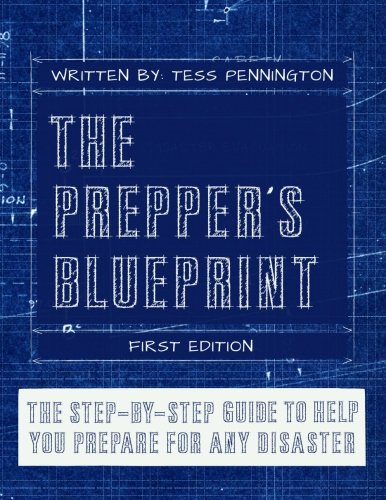One of the most distinctive things about the eruption of Black Lives Matter protests across the world is the speed with which they were endorsed by virtually every powerful institution and individual. From Hollywood to the churches, from big business to public-health officials, the word is out: support for BLM is essential, and in some cases mandatory.
Online influencers are vying with each other to show how much they support BLM. Elite institutions are now telling their people that they have a duty to come to terms with their racism. Prestigious institutions from Eton College to the British Museum have issued statements in support of the movement. Elsewhere, employees have come under pressure to adopt the symbols of solidarity associated with BLM.
There is something perplexing about the way that elite institutions and powerful people are falling over themselves to be on the side of the angels. It is almost as if they have concluded that unless they act with haste in relation to supporting BLM, they will be in trouble. In some cases, institutions and companies have gone so far as to attack other businesses and individuals who appear to have strayed from the party line. Reebok ended its partnership with CrossFit because it was outraged by the CEO’s insensitive tweet on George Floyd. CrossFit’s CEO, Greg Glassman, tweeted ‘It’s FLOYD-19’ after the Institute for Health Metrics and Evaluation classified racism and discrimination as public-health issues. Predictably, numerous well-known people got on the bandwagon to denounce Glassman’s tweet as racist.
 The Prepperu2019s Blue...
Best Price: $11.98
Buy New $18.98
(as of 02:20 UTC - Details)
The Prepperu2019s Blue...
Best Price: $11.98
Buy New $18.98
(as of 02:20 UTC - Details)
Typically these days, whenever an individual is called out and denounced for his language, an apology will swiftly follow. And so it was with Glassman. ‘I made a mistake by the words I chose yesterday’, he said, before adding: ‘My heart is deeply saddened by the pain it has caused. It was a mistake, not racist but a mistake.’
In the current climate, there can be no ‘mistakes’. Your words will come back to bite you. Just about any gesture or statement can be branded as not only insensitive, but racist. Poor Karol G, the reggaeton singer, who in response to the protests following George Floyd’s death tweeted a now-deleted picture of her black-and-white coated dog with the caption: ‘The perfect example that Black and White TOGETHER look beautiful.’ She also included the #BlackLivesMatter hashtag. When she was inevitably denounced and ridiculed, she issued a pleading apology: ‘I want to make clear that my intentions were right in the photo I posted earlier. I meant to say that racism is terrible and that I cannot begin to understand it.’
 Fentanyl, Inc.: How Ro...
Buy New $13.50
(as of 05:32 UTC - Details)
Fentanyl, Inc.: How Ro...
Buy New $13.50
(as of 05:32 UTC - Details)
Other influencers have been forced to issue apologies for saying things that violated what is permissible according to the new BLM etiquette. After an outburst of criticism when she tagged a post #AllLivesMatter, the influencer Natasha Fischer wrote: ‘I can’t take back my ignorant hashtag but I can learn from it and do better.’ She pleaded: ‘I hope that this is heard and it’s understood that I made a mistake.’
As black actor Terry Crews has also discovered, only one point of view is allowed right now. He got called out for tweeting that ‘defeating white supremacy without white people creates black supremacy’. He was widely denounced. It is very difficult for a celebrity to hold or express genuine personal opinions these days. As one report notes, ‘People are urging celebrities to support Black Lives Matter online or stop posting entirely’.
 Tell Your Children: Th...
Buy New $13.85
(as of 05:32 UTC - Details)
If powerful celebrities, influencers and businessmen feel that they have no choice but to apologise and ask for absolution in relation to the BLM etiquette, imagine what it is like for everyday people who face pressure from employers or institutions to embrace what is fast becoming a new kind of groupthink. And when even grown-ups behave like naughty children and ask for forgiveness for getting their words wrong, imagine the impact this censorious culture will have on actual children.
Tell Your Children: Th...
Buy New $13.85
(as of 05:32 UTC - Details)
If powerful celebrities, influencers and businessmen feel that they have no choice but to apologise and ask for absolution in relation to the BLM etiquette, imagine what it is like for everyday people who face pressure from employers or institutions to embrace what is fast becoming a new kind of groupthink. And when even grown-ups behave like naughty children and ask for forgiveness for getting their words wrong, imagine the impact this censorious culture will have on actual children.
Last night I talked to a mother who described how her 11-year-old daughter is at a loss to know how to respond to the pressure she faces from her peers and others on Instagram to include a BLM hashtag on her posts. ‘Can I just post a cake that I baked on Instagram?’, she asked. When young children are faced with the demand to conform or else, it is clear that a powerful mood of illiberal intolerance is sweeping our societies. Threatened with being ostracised, children as young as 11 and 12 now feel compelled to fall in line. Suddenly, the term ‘peer pressure’ has acquired a whole new dimension.




